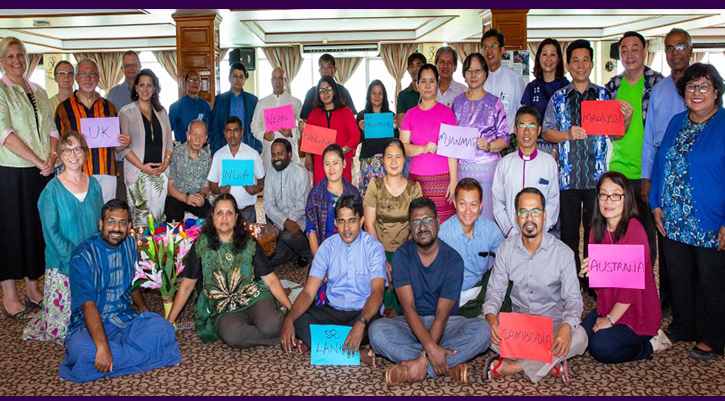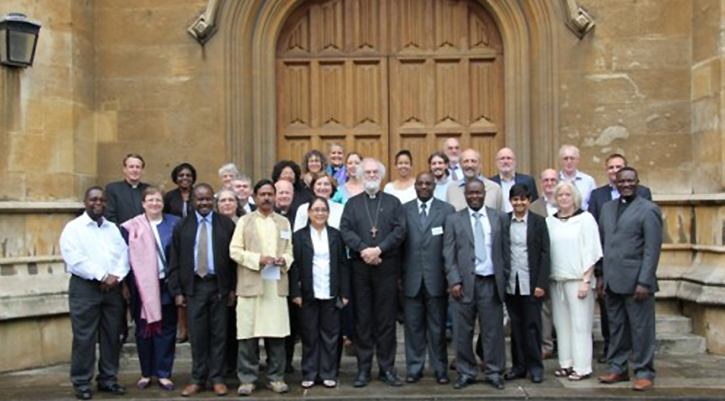The Anglican Alliance and Episcopal Relief & Development: Working Together for Lasting Change in Times of Disaster

We have all been shocked and saddened by the terrible devastation Hurricane Dorian visited upon the Bahamas. The death toll is likely to continue to rise. The destruction is heartbreaking.
In times like this, I try to remind myself that the road to recovery is hard and long but with the right support, approach and commitment it is possible. Our ability to coordinate and leverage our relationships across the Anglican Communion give us more flexibility and a wider reach.
For instance, our response to Dorian in the Bahamas is underway in collaboration with the Anglican Alliance. Some of our friends and supporters are curious about the Alliance and how it relates to our work in the Bahamas.
Since I was present at the creation of the Anglican Alliance, I thought it might be helpful to explain the role the Alliance plays in Episcopal Relief & Development’s international disaster response.
By way of background, the Anglican Alliance grew out of a call by the bishops of the Anglican Communion at the Lambeth Conference of 2008 for greater collaboration and cooperation across the Communion when it comes to responding to disasters. A number of bishops expressed frustration that there was no one Communion-wide point of contact they could call on in times of disaster. As a result, the Archbishop of Canterbury convened a design team, of which I was a part, to address this concern. The Anglican Alliance was established to respond to this call.
It’s important to know that the Alliance is not and was never envisioned to be an international relief and development agency. It does not collect or disburse funding. The Anglican Communion already has a number of excellent agencies that do that kind of work. Indeed, many Provinces of the Communion have departments or stand-alone agencies much like Episcopal Relief & Development.
What was sorely lacking, however, was a way for us all to collaborate and coordinate in times of disaster.

,Perhaps it goes without saying, but disasters produce chaos.
In times of disaster and with all the best of intentions in the world, people mobilize and seek to assist the local diocese where a disaster occurs, much as we are doing for the Bahamas. In the past, this sometimes led to further chaos—multiple reporting requirements, miscommunication about needs, double funding of some needs and critical gaps in other places. It became clear that we were just creating more confusion and heavier burdens on Church partners already overwhelmed by the disaster itself.
So, here’s where the Anglican Alliance comes into the picture.
In the immediate aftermath of a disaster the Alliance convenes all of the major players working on relief and development across the Communion to address the disaster in a collaborative and coordinated way. The impacted diocese has one point of contact at the Alliance (rather than multiple points of contact around the world) and works with a support team to create a comprehensive proposal that addresses the most urgent priorities as much as possible.
The agencies and others who want to help, then take that proposal, and cooperate to fund it to the extent we can. Episcopal Relief & Development focuses on funding humanitarian needs while others may focus on funding church infrastructure needs.
Often there is a lead agency to oversee the response and foster collaboration with other Anglican agencies. In the case of the Bahamas, Episcopal Relief & Development is likely to be the lead agency, given our proximity to the Bahamas and our experience.
Episcopal Relief & Development will also support the deployment of one of our Partners in Resilience and Response (someone from elsewhere in the Communion, in this case from within the region, who through experience and training is equipped in disaster management) to the Bahamas to help the diocese develop its strategy. This is a new aspect of our international disaster response and we hope that it will help the diocese serve the needs of the most vulnerable more effectively and efficiently.
It has been invaluable to have the Alliance as the single point of contact and as a platform for collaboration in the Anglican Communion at these difficult times. The Alliance helps to clarify communication and identify needs quickly so that we can all do what we want to do: help those most in need.
The Anglican Alliance may not be one of the official instruments of unity in the Anglican Communion, but is sure feels like that when the chips are down.
 |
Rob Radtke is the President & CEO at Episcopal Relief & Development. |
First Image: Participants in the Anglican Alliance gather in Myanmar for a workshop in 2019.


